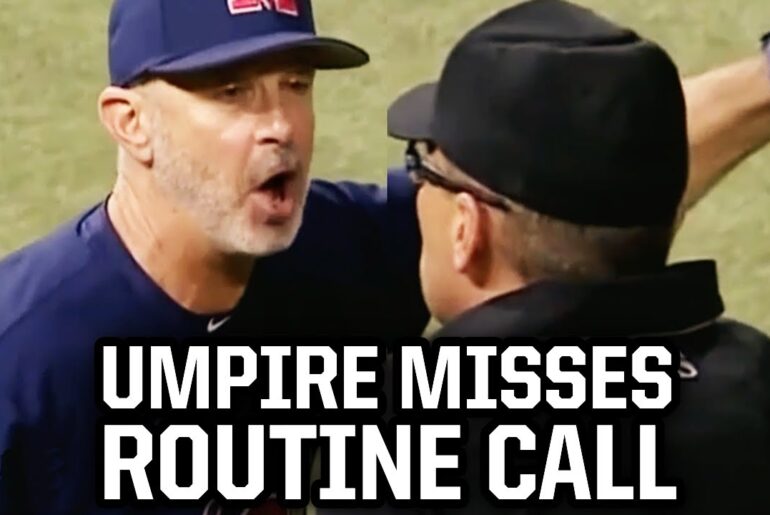In a thrilling college baseball game between Texas Tech and Kansas, number 41, Sam Hunt, found himself at the center of a controversial play. With Texas Tech leading by a massive 19-1 margin, Hunt was aiming to make it an even more impressive 20 runs. However, what followed was a sequence of events that left everyone puzzled and debating the rules of the game.
The Mystery of Camera Angles
Before we delve into the main incident, let’s address a minor grievance – the camera angles used in college baseball broadcasts. Many fans, like our speaker, have long wondered why better camera positions aren’t employed to capture the essence of the game. The suggestion of using ladders to gain elevated perspectives from center field is not without merit. With a clearer view, viewers could better analyze the pitches and plays unfolding on the field.
The \”Robbed\” Home Run
With the stage set, we turn to the moment in question. Hunt powerfully smashed the ball deep into dead center field. It seemed destined for a home run, but as the ball soared, the center fielder leaped to make a play at the wall. Did he catch it? The lack of a clear reaction from the fielder and the absence of a call from the umpire left everyone in suspense.
An Attempt at Deception?
Our speaker recalled instances when center fielders acted like they made an outstanding catch to fake out the fans, only to reveal later that they didn’t make the catch. The memory of Milky Cabrera doing this to Aaron Judge still lingers. So, naturally, when the center fielder didn’t provide a clear reaction, it sparked suspicions. Did he actually catch the ball or not?
The Umpire’s Call
The confusion didn’t end there. The second base umpire promptly positioned himself to make the call as he realized the ball was heading over the fence. He correctly signaled a home run, but the strange turn of events began when the first base umpire intervened.
The Turn of Events
Sam Hunt, thinking he had caught the ball, didn’t round second base immediately. Little did he know; the first base umpire noticed this and quickly pointed out the irregularity to his fellow umpire. The exchange led to a decision – Sam Hunt was deemed \”out\” for running out of the baseline. The home run he thought he had secured was suddenly snatched away.
The Unfortunate Outcome
As a result of the controversial call, Sam Hunt’s potential first home run in his college career was denied. Despite the ball clearing the fence, he was not credited with a home run due to the baserunning mistake. A frustrating outcome for the young player and a topic of heated debate among baseball fans.
Inconsistent Rules
This incident brings attention to a broader issue in baseball – inconsistent rules regarding home runs. If a ball goes over the fence, it should be a home run, plain and simple. The nuances of baserunning should not overshadow the athletic feat of hitting the ball out of the park.
In conclusion, Sam Hunt’s unfortunate tale at Texas Tech highlights the drama and complexities that can arise in baseball. The lack of clarity from camera angles and the intricate rules surrounding home runs can lead to heartbreak for players and fans alike. Baseball’s governing bodies may need to reconsider and streamline certain aspects of the game to ensure a fair and enjoyable experience for everyone involved.



